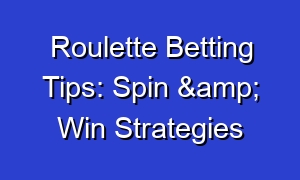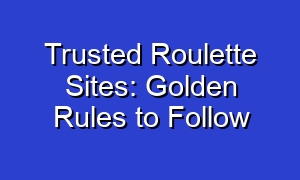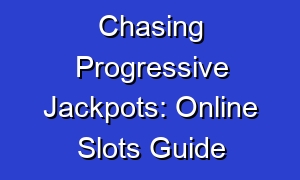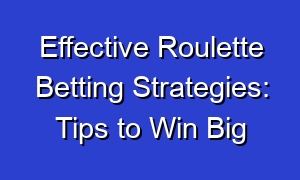Key Tips to Avoid Gambling Addiction
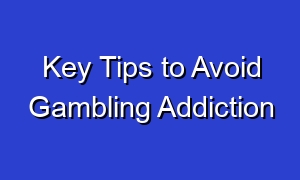
Avoiding gambling addiction can be challenging, but with these key tips, you can protect yourself from falling into the trap. Learn how to set limits, recognize warning signs, and seek support to maintain a healthy relationship with gambling. Start your journey towards responsible gambling today.
When it comes to avoiding gambling addiction, there are several key tips that can help you stay on track. First and foremost, it’s crucial to set limits on your gambling activities. This means establishing a budget and sticking to it, ensuring that you don’t spend more than you can afford to lose. Additionally, managing your time is essential. Allocating specific periods for gambling and sticking to them can prevent excessive and impulsive behavior. Another important tip is to seek support from friends, family, or professional counselors who can provide guidance and encouragement throughout your journey. Furthermore, identifying triggers that may lead to gambling urges is vital. By recognizing these triggers, you can develop strategies to avoid or cope with them effectively. Lastly, engaging in alternative activities such as exercise, hobbies, or socializing can help divert your focus away from gambling and reduce the risk of addiction.
| Avoiding gambling addiction: Set limits on time and money spent. |
| Recognize early warning signs of gambling addiction, such as chasing losses. |
| Find healthier alternatives to gambling, like engaging in hobbies or exercise. |
| Seek support from friends, family, or support groups for gambling addiction. |
| Develop coping mechanisms to deal with stress or emotional triggers without resorting to gambling. |
- Avoid tempting environments that may trigger gambling urges.
- Practice self-care and prioritize mental and physical well-being.
- Avoid excessive alcohol consumption, as it can impair judgment and increase the risk of gambling.
- Take responsibility for your actions and acknowledge the consequences of gambling addiction.
- Stay informed about the risks of gambling and educate yourself about responsible gambling practices.
Contents
- How can I recognize the signs of gambling addiction?
- What are some effective strategies for avoiding gambling addiction?
- How can I resist the urge to gamble?
- Are there any support groups or resources available for gambling addiction?
- What are some healthy coping mechanisms for dealing with gambling urges?
- How can I rebuild my life after overcoming gambling addiction?
- What are some warning signs that I may be at risk of developing a gambling addiction?
How can I recognize the signs of gambling addiction?
Gambling addiction can be difficult to recognize, but there are some common signs to watch out for. These may include an increasing preoccupation with gambling, a need to gamble with larger amounts of money to achieve the same thrill, unsuccessful attempts to cut back or stop gambling, and feeling restless or irritable when not gambling. Other signs may include lying about gambling activities, borrowing money to gamble, and neglecting personal or professional responsibilities due to gambling.
What are some effective strategies for avoiding gambling addiction?
There are several strategies that can help in avoiding gambling addiction. One important tip is to set limits on how much time and money you spend on gambling. This can be done by creating a budget specifically for gambling activities and sticking to it. It is also helpful to find alternative activities or hobbies that can provide enjoyment and fulfillment without the risks of gambling.
How can I resist the urge to gamble?
Resisting the urge to gamble can be challenging, but there are techniques that can help. One approach is to distract yourself with other activities when the urge arises. This could involve engaging in physical exercise, spending time with friends or family, or pursuing a hobby or interest. It can also be helpful to remind yourself of the negative consequences of gambling and the benefits of staying away from it.
Are there any support groups or resources available for gambling addiction?
Yes, there are numerous support groups and resources available for individuals struggling with gambling addiction. Gamblers Anonymous is a well-known organization that offers support meetings and a 12-step program similar to Alcoholics Anonymous. There are also online forums and helplines where individuals can seek guidance and support. Additionally, many therapists and counselors specialize in treating gambling addiction and can provide professional help.
What are some healthy coping mechanisms for dealing with gambling urges?
Developing healthy coping mechanisms is crucial in managing gambling urges. Some effective techniques include practicing relaxation exercises such as deep breathing or meditation, engaging in physical activities to release tension, seeking emotional support from friends or family, and finding healthy outlets for stress such as journaling or creative hobbies. It can also be beneficial to identify triggers that lead to gambling urges and develop strategies to avoid or manage them.
How can I rebuild my life after overcoming gambling addiction?
Rebuilding your life after overcoming gambling addiction is a process that requires time and effort. It is important to focus on self-care and prioritize your physical and mental well-being. This may involve seeking therapy or counseling to address any underlying issues related to the addiction. Building a strong support network of friends and family who understand and support your recovery is also essential. Additionally, setting new goals and pursuing new interests or hobbies can help create a fulfilling and meaningful life without relying on gambling.
What are some warning signs that I may be at risk of developing a gambling addiction?
There are several warning signs that indicate you may be at risk of developing a gambling addiction. These include frequently thinking about gambling, feeling the need to increase your bets to maintain excitement, experiencing restlessness or irritability when not gambling, lying about your gambling activities, borrowing money to gamble, and neglecting personal or professional responsibilities due to gambling. If you notice these signs in yourself or someone you know, it is important to seek help and support as early as possible.




